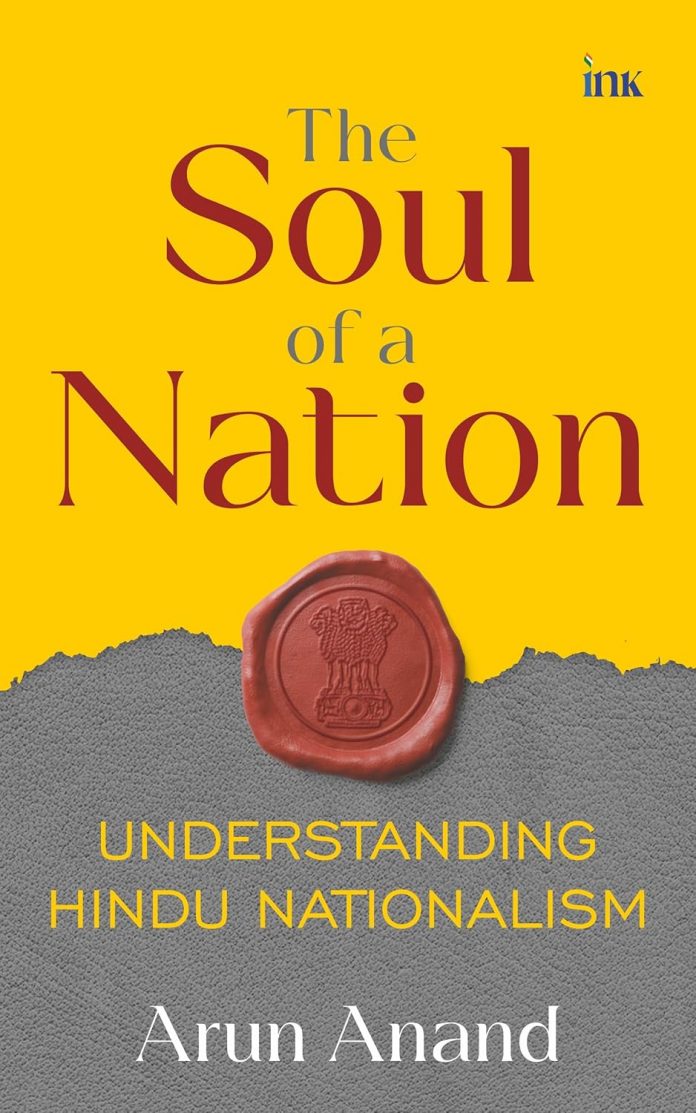Arun Anand’s ‘The Soul of a Nation’ is an easy-to-understand primer on Hindu nationalism. Far from being similar to a dense scholarly book, it is similar to a guidebook of India’s civilizational experience. The book is especially ideal for starters who want to learn about Hindu culture and the basis of Hindu nationalism without the burden of technical jargon and polemical froth.
The writing flows logically. It begins with notions of ‘Hindutva’ and ‘Hinduness’, outlining how Hindu identity is rooted in ‘dharma’ and not bounded by strict religious definitions. Drawing on philosophers such as Chandranath Basu and V.D. Savarkar, Anand demystifies the historical evolution of Hindutva and outlines it in a positive context.

He then contrasts Western nationalism, typically constructed around geography, language, and ethnicity, with Hindu nationalism, which is both civilizational and religious. In order to do this, Anand quotes the writings of Bankim Chandra, Rabindranath and Abanindranath Tagore, Radha Kumud Mookerji, and Sri Aurobindo, and demonstrates how literature, art, and philosophy influenced India’s understanding of nationhood.
The middle chapters deal with Hindu polity and the concept of the Hindu kingdom. Anand emphasizes the way assemblies like the ‘sabha’ and ‘samiti’ were indicative of early democratic sentiments. The chapters continue by invoking Kautilya and Panini to illustrate the richness of ancient political imagination. He also makes Shivaji a model of Hindu statecraft, drawing on historians like K.M. Phalke and Jadunath Sarkar to represent him as a warrior, visionary ruler and administrator.
The last chapter turns to Hindu economics, deriving its principles from the Vedas, ‘Vidura Nīti’, and ‘Sukra Nīti’. Anand believes that Hindu economics was never ethics- and balance-obsessed but never a mere materialism. Inspiring as this section is, it is more philosophical than practically applicable to the modern world.
The relative strength of the book lies in its clarity and sweep. The book offers a civilizational perspective often missing in mainstream debate, portraying Hindu nationalism as a cause. However, the narrative sometimes leans towards a justification and avoids a direct engagement with critical arguments.
In spite of these shortcomings, the book is a helpful addition to Hindu nationalism debate. Its real worth is that of an introductory handbook—students, readers in general, or non-Indian readers who wish to venture into Hindu nationalism beyond the polarized gaze of politics and media. By theorizing it as a civilizational and not merely political notion, Anand enables us to have a better appreciation of India’s cultural and philosophical heritage.
For beginners, this book is a reasonable starting point—thoughtful, clear, and rooted in history and culture. For academics, it will probably be more introductory than penetrating. But as an entry point to more sophisticated arguments, ‘The Soul of a Nation’ does manage to make Hindu nationalism comprehensible and relevant beyond the front page.
BD Hindu Persecution Report Jan-June 2025
By Aritra Ghosh Dastidar
